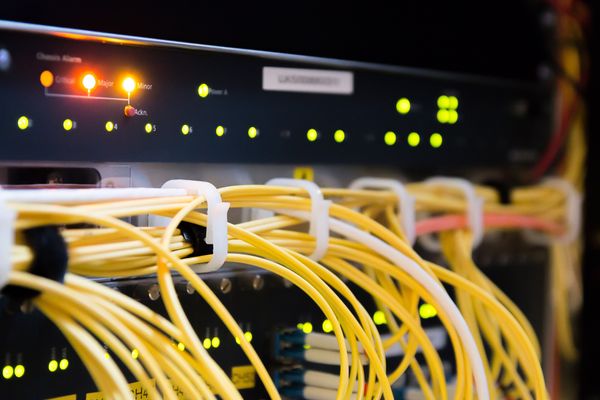VPN App Traffic Optimizer vs Split Tunneling: Understanding the Differences

Many VPN services provide additional features that can improve user experience. Although it allows you to fine-tune your privacy protection, a feature-rich interface could confuse you if you're not tech-savvy.
Two such features that could spark confusion among users are the VPN app traffic optimizer and split tunneling. While they may seem similar, several key differences set them apart.
Understanding the way they work and which one works best in what scenario could help you make the most out of your VPN service.
What is a VPN app traffic optimizer?
A VPN app traffic optimizer is a straightforward feature designed to improve the performance of your internet connection by prioritizing certain apps over others. It's generally known that routing your connection through a VPN tunnel can slow it down.
Enabling the traffic optimizer prioritizes traffic to the app of your choice, allowing you to tackle VPN slowdowns without shutting down bandwidth-demanding apps or services on your device.
For example, if you're streaming video online while downloading large files, you could use the optimizer to allocate more bandwidth to the streaming app so your video doesn't buffer or lag.
The VPN app traffic optimizer aims to provide uninterrupted privacy protection without sacrificing your connection speed.
What is split tunneling?
Although it carries a slightly more technical moniker, split tunneling is a feature that numerous VPN services implement within their infrastructure.
It lets users route some internet traffic through the VPN tunnel while the rest goes through their regular, unencrypted internet connection.
Splitting your traffic into "secured" and "unsecured" may sound counterintuitive, but split tunneling can help if you only need to cloak some online activity, such as online banking or browsing sensitive websites, but don't want to slow down activities like gaming or streaming.
This feature gives you more control over which apps and websites use the VPN connection and which are excluded from the tunnel.
However, routing some of your traffic outside the VPN could expose sensitive data such as your IP address and location to third parties.
Which one should you choose?
While the benefits of VPN app traffic optimizer and split tunneling differ, the good news is that they are not mutually exclusive. You can enable both features on your system at the same time.
If you want to fine-tune your internet connection's performance while keeping control over which apps and websites use the VPN, consider enabling both features.
With a VPN app traffic optimizer, you can allocate more bandwidth to certain apps while limiting other, less important ones to improve performance. Meanwhile, split tunneling lets you choose which parts of your internet activity are tunneled and encrypted.
It's important to note that, while these features can co-exist, finding a trustworthy VPN service that showcases both features and employs robust encryption protocols is still essential.
Split tunneling and traffic optimizers can improve user experience
In conclusion, VPN app traffic optimizer and split tunneling can bring the most out of your online experience with added security benefits.
Ultimately, users can decide which best fits their needs based on factors such as bandwidth allocation preferences or level of control over their online activity.
tags
Author

Vlad's love for technology and writing created rich soil for his interest in cybersecurity to sprout into a full-on passion. Before becoming a Security Analyst, he covered tech and security topics.
View all postsRight now Top posts
Start Cyber Resilience and Don’t Be an April Fool This Spring and Beyond
April 01, 2024
Spam trends of the week: Cybercrooks phish for QuickBooks, American Express and banking accounts
November 28, 2023
FOLLOW US ON SOCIAL MEDIA
You might also like
Bookmarks








